This article was co-authored by Robert Dhir, MD. Dr. Robert Dhir is a board certified Urologist, Urological Surgeon, and the Founder of HTX Urology in Houston, Texas. With over 10 years of experience, Dr. Dhir’s expertise includes minimally-invasive treatments for enlarged prostate (UroLift), kidney stone disease, surgical management of urological cancers, and men’s health (erectile dysfunction, low testosterone, and infertility). His practice has been named a Center of Excellence for the UroLift procedure, and is a pioneer in non-surgical procedures for ED using his patented Wave Therapy. He earned his undergraduate and medical degrees from Georgetown University and was awarded honors in pre-medical studies, urology, orthopedics, and ophthalmology. Dr. Dhir served as chief resident during his urological surgical residency at University of Texas at Houston / MD Anderson Cancer Center in addition to completing his internship in general surgery. Dr. Dhir was voted Top Doctor in Urology for 2018 to 2019, one of the top three Best Rated Urologists in 2019 & 2020 for Houston Texas, and Texas Monthly has named him to the 2019 & 2020 Texas Super Doctors Rising Stars list.
There are 7 references cited in this article, which can be found at the bottom of the page.
This article has been viewed 164,368 times.
Urinating after surgery is important, though it can be difficult. Anesthesia can relax your bladder muscles, causing it to be difficult to urinate.[1] The inability to urinate can lead to bladder problems known as urinary retention, so if you cannot urinate, your doctor will need to put in a catheter temporarily to empty your bladder. To ensure that you urinate after surgery, talk to your doctor before surgery, move around and try to relax your bladder after surgery, and alert your doctor of any problems post-surgery.
Steps
Managing Pre-Surgery Problems
-
1Empty your bladder completely before surgery. Another thing that can help your bladder after surgery is making sure that you empty it before you go under anesthesia. You should urinate as close to going under as possible. Any urine left in your bladder during your surgery can make it harder to urinate afterwards.[2]
- While this can reduce how much you urinate after surgery, you will still urinate some. You should produce at least 250cc of urine within 4 hours following surgery, although some may produce between 1,000 cc and 2,000cc.
-
2Recognize if you are at risk. Some people are more at risk of being unable to urinate after surgery. Some medications will increase your risk, so you should talk to your doctor about your medications before surgery. Other risk factors include:[3]
- Being over 50 years old.
- Being male, especially if you have an enlarged prostate.
- Being under anesthesia for a long time.
- Increased IV fluid.
- Taking certain medications, like tricyclic antidepressants, beta-blockers, muscle relaxants, bladder medications, or medications containing ephedrine.[4]
Advertisement -
3Perform pelvic floor exercises. If you are a woman, you may benefit from performing pelvic floor exercises, such as Kegel exercises. This helps strengthen the muscles used in urination so you can better control your bladder and hopefully be able to urinate more easily.[5]
-
4Make diet changes before your surgery if you suffer from constipation.[6] People who suffer from constipation may suffer from urinary retention. To slightly reduce the risk or the severity of this problem, make sure that you drink plenty of water in the weeks before your surgery. You should also add plenty of foods with fiber, eat more prunes, and avoid processed foods. Also, stay active and move around as much as possible.
- Fruits and veggies have a lot of fiber in them, so increase your daily intake. You can try apples, berries, leafy greens, broccoli, carrots, and beans.
Promoting Urination after Surgery
-
1Move around after surgery. The more that you move around after your surgery, the more likely you are to urinate. Whenever you are safely able to, sit up, stand up, and walk. This helps stimulate your bladder and urges your body to urinate by shifting your bladder into the right position.[7]
-
2Urinate every few hours. Going four hours or more without urinating may lead to bladder problems or make it difficult to urinate. After your surgery, try to empty your bladder every two to three hours.[8]
-
3Turn on the faucet. If you are struggling to urinate, try turning on the faucet and letting the water run. The sound of running water can sometimes help stimulate your brain and bladder so you can urinate. If the sound is not helping, run a little bit of the water over your stomach.[9]
-
4Sit down if you are a man. If you are a man who is having trouble urinating after surgery, sit down to urinate. Sometimes, sitting down can relax the bladder so it can release. Try this a few times instead of standing.[10]
-
5Take a warm bath. If you can, take a warm bath. The warm bath can help relax your brain, body, and bladder, which may help you urinate. Sometimes, it’s easier to urinate in the bathtub right after surgery, and that’s okay. Urinating any way possible is important post-surgery.
- Try using peppermint oil in a diffuser or other aromatherapy device while taking your bath. Smelling peppermint oil may help you urinate.
- This may not always be an option after surgery. If the medical team wants you to urinate before leaving the hospital, you may not be able to take a bath.
-
6Avoid drinking excess fluids to try to urinate. While you need to drink fluids and stay hydrated after surgery, you should not drink a lot of fluids to try and get yourself to urinate. This can cause the bladder to get overfull and can lead to stretching or other problems. Instead, sip water or drink a normal amount for you and let the urges happen naturally.
Addressing Bladder Problems Post-Surgery
-
1Identify the symptoms of a bladder problem. Due to the anesthesia, you may experience difficulty urinating after surgery.[11] This may include inability to urinate, feeling like you cannot empty your bladder, or needing to strain. You also may need to urinate often, but be unable to urinate very much. These may be symptoms of a bladder infection or another problem.[12]
- If it's a bladder infection, you may produce small amounts of urine, but you may still feel a need to use the toilet. The urine will usually be cloudy and have a strong smell.
- If you have urine retention, you may have a full or tender feeling in your lower abdomen. It may feel hard when pressed. Although you may need to go to the bathroom, you may not be able to urinate.
-
2Tell your nurse or doctor if you can’t urinate. If you cannot urinate after surgery, tell your nurse or doctor. They can examine your bladder by touching it to see if there is any pain. They might also do an ultrasound on your bladder. If they think you need help, they can put a catheter into your bladder to help drain the urine until you can urinate on your own.[13]
- If you go home after surgery, you should urinate within 4 hours to eliminate fluids that were given to you during surgery. If you haven’t urinated after 4 to 6 hours, contact your doctor or go to the emergency room.
- You may need the catheter only once. In more severe cases of urinary retention, you may need the catheter inserted for longer.
-
3Track your urinary habits. For a few days after your surgery, keep a log of how often you urinate. Note the time as well as the amount of urine. Track how much fluids you are drinking, and compare that to how much you are urinating. You should also track how you feel when you urinate. For example, do you have an urge to urinate but have trouble eliminating? Do you have to strain? Does it feel like you haven't emptied your bladder? Is there a strong smell to your urine? These things can help you figure out if you have a bladder infection or another problem.
-
4Take medication. There are medications your doctor can prescribe to help you be able to urinate after surgery.[14] The medication will target the area of your brain that controls urination and counteract the effect the anesthesia has on it. This will help you be able to urinate more easily.[15]
- Alpha-blockers or alpha-inhibitors may be prescribed to help.
Expert Q&A
Did you know you can get expert answers for this article?
Unlock expert answers by supporting wikiHow
-
QuestionWhy is it difficult to pee after surgery?
 Robert Dhir, MDDr. Robert Dhir is a board certified Urologist, Urological Surgeon, and the Founder of HTX Urology in Houston, Texas. With over 10 years of experience, Dr. Dhir’s expertise includes minimally-invasive treatments for enlarged prostate (UroLift), kidney stone disease, surgical management of urological cancers, and men’s health (erectile dysfunction, low testosterone, and infertility). His practice has been named a Center of Excellence for the UroLift procedure, and is a pioneer in non-surgical procedures for ED using his patented Wave Therapy. He earned his undergraduate and medical degrees from Georgetown University and was awarded honors in pre-medical studies, urology, orthopedics, and ophthalmology. Dr. Dhir served as chief resident during his urological surgical residency at University of Texas at Houston / MD Anderson Cancer Center in addition to completing his internship in general surgery. Dr. Dhir was voted Top Doctor in Urology for 2018 to 2019, one of the top three Best Rated Urologists in 2019 & 2020 for Houston Texas, and Texas Monthly has named him to the 2019 & 2020 Texas Super Doctors Rising Stars list.
Robert Dhir, MDDr. Robert Dhir is a board certified Urologist, Urological Surgeon, and the Founder of HTX Urology in Houston, Texas. With over 10 years of experience, Dr. Dhir’s expertise includes minimally-invasive treatments for enlarged prostate (UroLift), kidney stone disease, surgical management of urological cancers, and men’s health (erectile dysfunction, low testosterone, and infertility). His practice has been named a Center of Excellence for the UroLift procedure, and is a pioneer in non-surgical procedures for ED using his patented Wave Therapy. He earned his undergraduate and medical degrees from Georgetown University and was awarded honors in pre-medical studies, urology, orthopedics, and ophthalmology. Dr. Dhir served as chief resident during his urological surgical residency at University of Texas at Houston / MD Anderson Cancer Center in addition to completing his internship in general surgery. Dr. Dhir was voted Top Doctor in Urology for 2018 to 2019, one of the top three Best Rated Urologists in 2019 & 2020 for Houston Texas, and Texas Monthly has named him to the 2019 & 2020 Texas Super Doctors Rising Stars list.
Board Certified Urologist & Urological Surgeon
Warnings
- If the bladder is full and you cannot urinate within 4 hours after surgery, get medical attention immediately. If you wait too long, you might develop mild congestive heart failure.⧼thumbs_response⧽
References
- ↑ Robert Dhir, MD. Board Certified Urologist & Urological Surgeon. Expert Interview. 23 September 2020.
- ↑ https://healdove.com/health-care-industry/Why-Do-I-Have-Bladder-Retention-after-General-Anesthesia
- ↑ https://healdove.com/health-care-industry/Why-Do-I-Have-Bladder-Retention-after-General-Anesthesia
- ↑ https://patient.info/health/urinary-retention
- ↑ https://uihc.org/health-topics/kegel-exercises-urinary-incontinence
- ↑ https://patient.info/health/urinary-retention
- ↑ https://healdove.com/health-care-industry/Why-Do-I-Have-Bladder-Retention-after-General-Anesthesia
- ↑ http://www.med.umich.edu/1libr/Gyn/BirthCenterPostpartum/BladderAfterOutpatientSurgery.pdf
- ↑ http://www.med.umich.edu/1libr/Gyn/BirthCenterPostpartum/BladderAfterOutpatientSurgery.pdf
- ↑ https://www.ucsfhealth.org/education/after_anal_and_rectal_surgery/
- ↑ Robert Dhir, MD. Board Certified Urologist & Urological Surgeon. Expert Interview. 23 September 2020.
- ↑ http://www.med.umich.edu/1libr/Gyn/BirthCenterPostpartum/BladderAfterOutpatientSurgery.pdf
- ↑ http://www.med.umich.edu/1libr/Gyn/BirthCenterPostpartum/BladderAfterOutpatientSurgery.pdf
- ↑ Robert Dhir, MD. Board Certified Urologist & Urological Surgeon. Expert Interview. 23 September 2020.
- ↑ http://anesthesiology.pubs.asahq.org/article.aspx?articleid=1924171
- ↑ Robert Dhir, MD. Board Certified Urologist & Urological Surgeon. Expert Interview. 23 September 2020.
About This Article
Although it can be difficult, there are several things you can do after surgery to help yourself urinate. First, move around as soon as you’re allowed to do so to help stimulate your bladder. Try sitting up, standing, and walking. Once you can move around, aim to empty your bladder every 2 to 3 hours, as going 4 or more hours without urinating can make it difficult to do so. If you’re having trouble urinating, try turning the faucet on to let the water run. Sometimes the sound of running water can help stimulate your bladder. It can also help to take a warm bath to help relax your brain and bladder, which may make it easier to urinate. If you aren’t able to urinate within 4 to 6 hours after surgery, let your doctor know. For more information from our Medical co-author, like how to recognize if you’re at risk of being unable to urinate after surgery, read on.



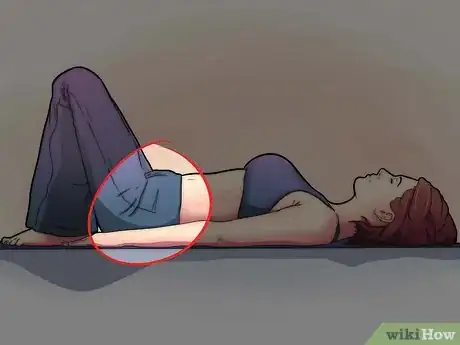

-Step-5.webp)
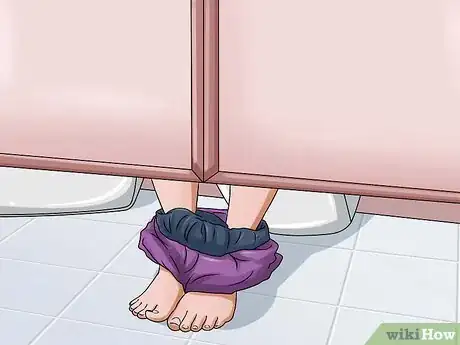
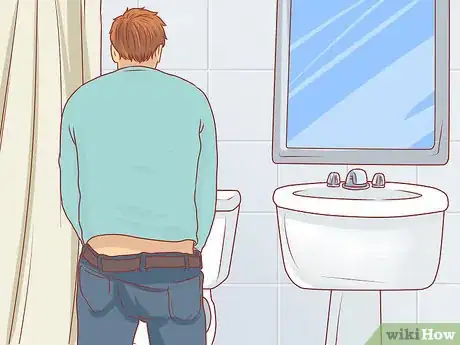
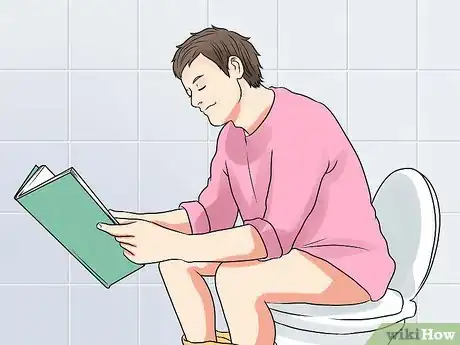









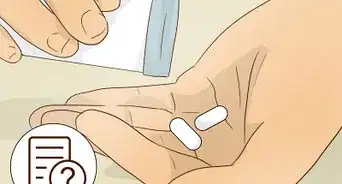


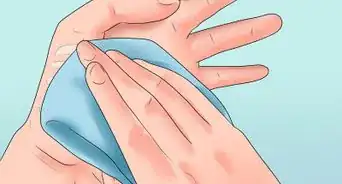



















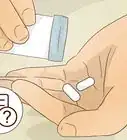



































Medical Disclaimer
The content of this article is not intended to be a substitute for professional medical advice, examination, diagnosis, or treatment. You should always contact your doctor or other qualified healthcare professional before starting, changing, or stopping any kind of health treatment.
Read More...